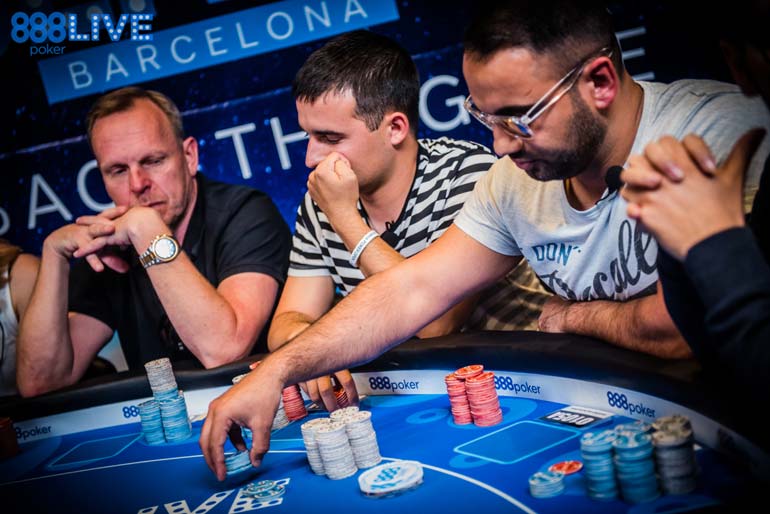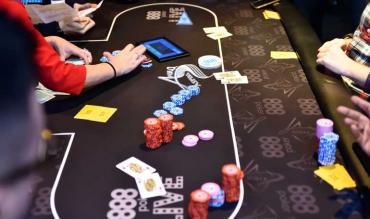Ten of us are sitting in the middle of a ballroom. I sneeze. I beg my pardon. There is an echo. I look up at the chandelier; it's like the one Del Boy dropped. The curtains are purple - my favourite colour. They could smother a football field.
I picture a young woman gliding across the floor with the grace of a swan cutting through the flow. And now, here we are, ten dumb looking ducks, waiting to have our heads taken off.
A caravan of people in white lab coats encircles us with clipboards in hand, chewing on pens. Hasn't anyone fed them? The pens feel like 12 Bore Shotguns, and one is pointed in my direction. The shooter closes her left eye and pretends to pull the trigger.
Or did the stress create the mirage to take my mind off the fact that there is no table?
Is this a Job Interview, or What?
I am in Cranfield University, going through a job interview selection process. They reward the winners with continued employment. The rest will have to tell their wives, husbands, mothers and fathers, that they weren't good enough. And all I am worried about is the lack of a table.
It's 2008; the UK is hurting from the economic crisis. I am an Area Production Manager working for a rail freight logistics company. Nobody is buying steel. We have to cut costs to keep in line with dropping revenues. The CEO displaces every manager in the company and sends us all to Cranfield to go through a selection process to be the new lean rail freight machine.
I’m old school.
A selection process for me is a one on one interview.
There are two key criteria: there are only the two of us in the room, and there is a table between us.
Here, there is no table.
And, there are ten of us.
Welcome to the world of group interviewing.
"Let's begin," said the smartest looking one.
And so, we did.
We debated the price point of a brand of suntan lotion called Bronze Glow and the smart people scribbled notes on their paper.
When you think about it, interviewing people en masse is efficient. It would take ten times longer if they did it the old-fashioned way. I also liked the way they watched us behave in a non-structured way. It was a little alien at first - like growing up in Liverpool and learning to play the violin - but over time you forget they are there.
And that gave me a thought.
Wouldn't it be great, if companies invited ten people to a selection process and watched them play poker? They would have to make sure that nobody knew how to play. There would be a brief introduction to the rules, and then it would be time to Shuffle Up and Deal.
What would they learn?
I reached out to professional poker player and writer, Reid Young, and this is what he had to say:
"Poker and business are about context, knowledge, patience, aggression and self-control," said, Young.
Table of Contents
Context
“The player should understand the context of his role in the game and within the company. For example, if I am hiring for a sales position, depending on the product and business model, sales can be a "fake it until you make it" sort of job. Posturing in itself has value, even with minimal knowledge about the product, or the poker game.
Against weaker players, posturing can help make bluffs succeed; but, the same employee or player needs to understand when to reel in the aggression.”
Knowledge
"If a player has done his homework, prior to a game for which he/she knows is to determine a company position, then I know that person could be even more valuable to me than an experienced person who did no work to learn poker because they felt like the job was theirs to lose. The ability to learn and to adapt to situations is key in business and poker."
Patience
"Waiting for the right moment to strike has a particular value. Missing those opportunities costs us value. In order to run a successful business or to be a successful poker player, it's important a player understands when and how to take particular actions. Over or under-aggression are both fatal."
Aggression
"There is a time and a place for wild aggression and complete passivity. Understanding the difference between the values of an aggressive or a passive action can be key, especially with emotional confrontations at the poker table or in business."
Self-control
"The actions you take define you. If you take too many risks, you inevitably fail. If you take too few risks, you sacrifice value and are not playing as well as you could be. In business and poker, self-control and recognising the value of risk is paramount. Risk literally makes or breaks both a poker player and a business. "In addition to Reid's five excellent standards, I would also take a look at the following attributes:

Interpersonal Skills
The ability to connect with a broad variety of different personalities is critical in both business and poker. It’s also advantageous to be able to communicate effectively in a variety of different ways. Reid talks about the importance of posturing, which is an effective way of using the body to communicate, but I would also be looking to see how the players interacted verbally.
IQ/EQ
I would want my employee to demonstrate a high level of Intelligence Quotient (IQ) and Emotional Intelligence (EQ). Businesses can measure IQ & EQ by putting potential employees through a variety of tests, but the poker table is the perfect place to see them both working in unison. We have two minds: one that thinks and one that feels. As a businessman, I want to see both of these ticking.
Winning & Losing Mentality
There is only one winner in this game. Who will win and what will their reaction be? Who will lose and what will their reaction be? I wouldn't employ the winner just because they won. But it would be interesting to see how the characterisation emerges as a leader rises from the pack and eventually wins. Are they cocky or humble, do they shrug shoulders or fist pump? How do they handle bad beats and elimination? All of these factors are incredibly important in terms of emotional control both in poker and business.
So, there are eight different traits that both Reid Young and myself would be looking for if we used the poker table as the setting for a group interview.
Now it’s your turn.
What traits do you think a poker game would throw up that would be useful in your business?


